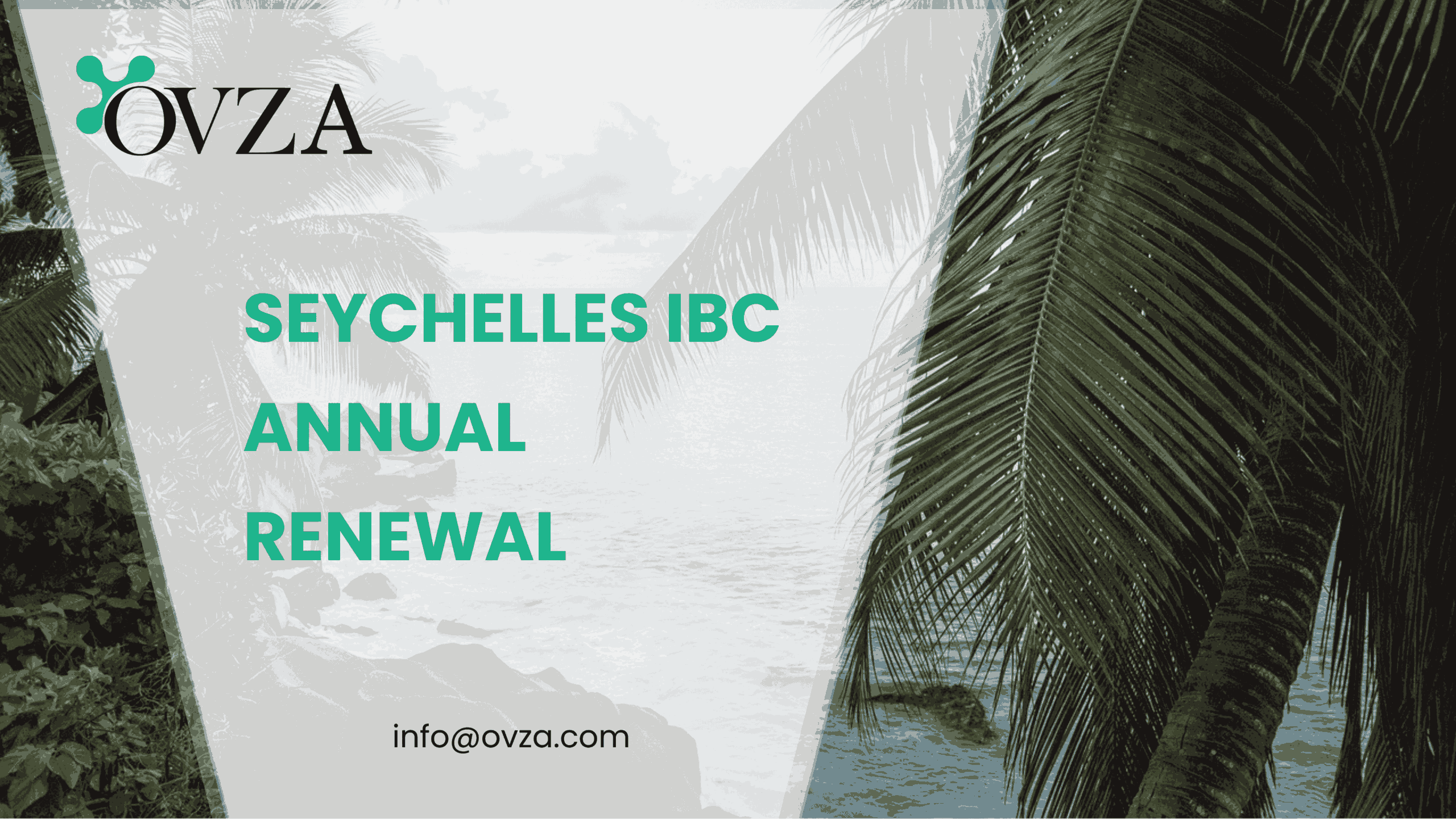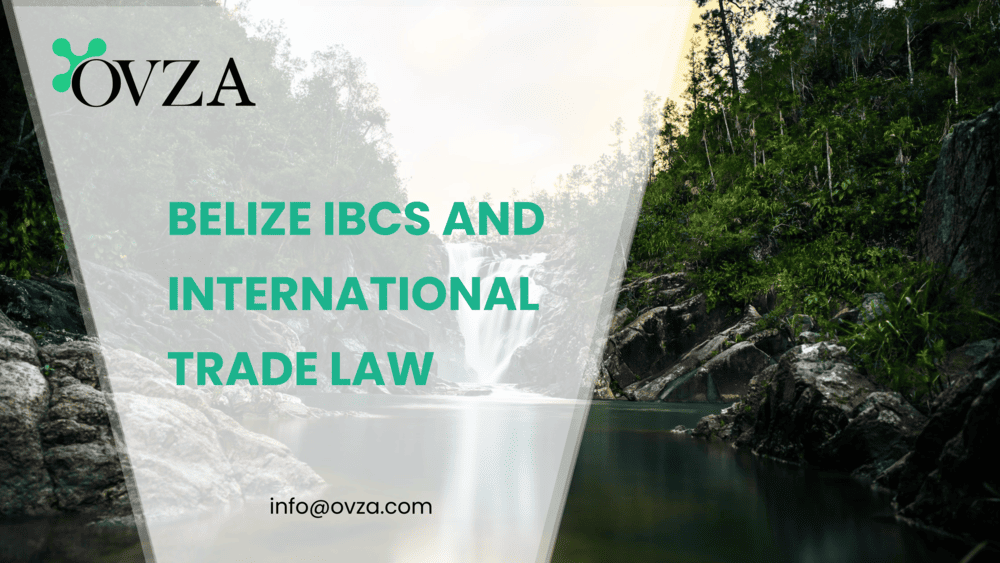Seychelles UBO register – Seychelles IBCs must comply with UBO disclosure rules, filing accurate beneficial ownership data under AML and international transparency standards.The Seychelles regime on beneficial ownership (UBO) transparency is governed primarily by the Beneficial Ownership Act, 2020 and corresponding regulations introduced to meet the jurisdiction’s international commitments under the OECD Global Forum and Financial Action Task Force (FATF). The legislative framework requires Seychelles International Business Companies (IBCs) and other entities to maintain and disclose updated beneficial ownership information through a centralized register maintained by the Financial Intelligence Unit (FIU). This obligation applies regardless of whether the entity is engaged in active commercial operations, and non-compliance can result in civil penalties, administrative enforcement, and potential regulatory sanctions against the registered agent.
Legal Obligations and Regulatory Framework
The UBO register is not a publicly accessible registry; however, it must be kept in a form that ensures accurate, adequate, and current information can be made available to competent authorities upon lawful request. Under section 10 of the Act, companies are required to submit beneficial ownership information to their registered agent, who then transmits it to the central FIU-maintained register. The scope of reportable data includes the full legal name, residential address, nationality, date of birth, and the nature and extent of the beneficial interest held. The threshold for identifying a beneficial owner in Seychelles aligns with international norms—defined as an individual who ultimately owns or controls more than 25% of the shares or voting rights, or who otherwise exercises control through other means.
Compliance is not merely a reporting formality but a continuing legal obligation. Section 16 of the Act requires that any change in beneficial ownership must be reported within 14 days of knowledge by the legal entity. This imposes a duty on directors, shareholders, and registered agents to implement monitoring mechanisms and internal procedures that ensure timely disclosure. Failure to comply may lead to the issuance of a compliance notice, financial penalties of up to SCR 50,000 for a first offence, and escalating sanctions for repeated breaches. Registered agents also bear joint responsibility for ensuring that the companies under their administration observe these legal obligations.
From a legal risk perspective, failure to comply with UBO register requirements affects the legal certainty of the entity’s standing in cross-border operations. Offshore jurisdictions such as Seychelles face increasing scrutiny from international financial institutions, tax authorities, and mutual evaluation mechanisms. Entities lacking proper UBO registration may be considered non-transparent, leading to reputational damage and derisking by banks and correspondent institutions. Non-compliant companies may also find themselves excluded from transactional due diligence processes or face additional scrutiny in mergers, acquisitions, or capital raising events. These consequences have been compounded by amendments introduced to the OECD Common Reporting Standard (CRS), which tie information exchange to robust beneficial ownership regimes.
While Seychelles has not made the UBO register publicly accessible, the government has signaled a willingness to evaluate reforms that would enhance transparency while balancing privacy and confidentiality. This includes commitments under the EU Council’s review of non-cooperative jurisdictions for tax purposes, which assess implementation of effective exchange of information frameworks. Legal practitioners must therefore advise clients not only on the mechanical compliance with current obligations but also on the need to anticipate evolving disclosure norms under multilateral cooperation standards.
Interface with AML Legislation and Regulatory Audits
The UBO Register framework in Seychelles is tightly interwoven with the country’s anti-money laundering regime, particularly under the Anti-Money Laundering and Countering the Financing of Terrorism Act, 2020 and the regulations promulgated under it. Registered agents are designated as reporting entities under the AML regime and are legally obligated to undertake customer due diligence (CDD), maintain up-to-date records, and verify beneficial ownership information independently of client declarations. This dual compliance structure ensures that UBO register submissions are not mere formalities but part of a broader framework designed to deter illicit finance, tax evasion, and misuse of corporate vehicles.
Under section 17 of the Beneficial Ownership Act, regulatory inspections may be conducted by the Financial Intelligence Unit to ensure the completeness and accuracy of data submitted to the central UBO Register. These inspections are supported by provisions that empower the authorities to impose administrative penalties and to issue compliance directives requiring remedial action within specified timelines. Entities that fail to comply with such directives may be subject to civil proceedings or regulatory referrals, and in severe cases, may be struck from the register of companies.
For Seychelles IBCs, the maintenance of UBO information is also a functional prerequisite for renewing the company’s good standing under the International Business Companies Act, 2016. As highlighted in discussions on annual renewal compliance, failure to maintain a current and accurate UBO register can prevent an IBC from lawfully continuing operations, including banking relationships and contractual activities. The Registrar and registered agent are empowered to suspend or terminate services to non-compliant companies, creating both legal and commercial consequences for the beneficial owners.
The legal definition of a beneficial owner, while aligned with global norms, is further clarified through guidance notes issued by the Financial Intelligence Unit and the FSA. These guidance documents detail circumstances under which nominees, legal representatives, or trust beneficiaries may fall within the definition of beneficial ownership, especially in layered or complex corporate structures. Offshore structuring involving foundations, discretionary trusts, or hybrid entities must be evaluated carefully to determine reportable control or ownership. Failure to disclose such structures accurately may be construed as willful concealment, with both civil and criminal liability consequences under section 25 of the AML Act.
Legal professionals advising on offshore incorporation in Seychelles are thus expected to integrate UBO compliance protocols into their standard formation and maintenance procedures. This includes drafting organizational documents that allow for internal transparency, establishing mechanisms for reporting ownership changes, and ensuring that clients are fully informed of the reporting thresholds and enforcement practices. The use of trust protectors, nominee shareholders, or layering through non-transparent jurisdictions must be evaluated not only under the letter of Seychelles law, but also in the context of economic substance and transparency obligations under international cooperative agreements.
International Interface and Disclosure Trends
The implementation of the Seychelles UBO Register occurs within a global framework increasingly oriented toward transparency, cross-border enforcement, and tax information exchange. The OECD’s BEPS (Base Erosion and Profit Shifting) Inclusive Framework and the EU’s Tax Good Governance Criteria have placed beneficial ownership transparency at the forefront of regulatory compliance benchmarks. Seychelles’ efforts to enhance its UBO framework—despite criticisms of non-public registers—represent a calibrated response to these external pressures, aimed at preserving its position as a legitimate offshore jurisdiction.
To comply with these expectations, registered agents, company secretaries, and legal advisers must navigate not only the national legal framework but also the complex interface between domestic rules and international enforcement mechanisms. Mutual legal assistance treaties (MLATs), automatic exchange of information (AEOI) under CRS, and FATF peer evaluations all contribute to a multilayered disclosure environment. Consequently, failure to ensure accurate and timely UBO registration may expose Seychelles entities and their controlling persons to scrutiny not only by local regulators but also by foreign tax and criminal enforcement authorities.
Furthermore, as other jurisdictions increasingly shift toward public UBO registers—following rulings such as the 2022 decision of the Court of Justice of the European Union in Joined Cases C-37/20 and C-601/20—Seychelles may face renewed demands to adjust its legal stance. Legal advisors must therefore consider the potential for retroactive regulatory reforms that could change the visibility or accessibility of beneficial ownership data, thereby altering the privacy assumptions underlying many offshore structures. Strategic decisions involving Seychelles IBCs must thus be informed not only by current legal texts but also by projected legislative trends and the evolving global compliance environment.
Conclusion
UBO register compliance in Seychelles is a binding legal obligation anchored in the Beneficial Ownership Act, 2020 and reinforced by the country’s AML framework. Legal entities, particularly IBCs, must ensure that accurate and up-to-date beneficial ownership information is filed with registered agents and transmitted to the centralized registry maintained by the FIU. Non-compliance may trigger administrative penalties, suspension of corporate rights, or regulatory delisting. As Seychelles aligns its laws with OECD and FATF expectations, beneficial ownership transparency is no longer a discretionary matter but a core element of lawful offshore structuring. Legal professionals must remain vigilant in ensuring that UBO disclosures are not only technically compliant but substantively accurate in light of international enforcement risks.
Disclaimer: The information provided on this website is intended for general reference and educational purposes only. While OVZA makes every effort to ensure accuracy and timeliness, the content should not be considered legal, financial, or tax advice.











